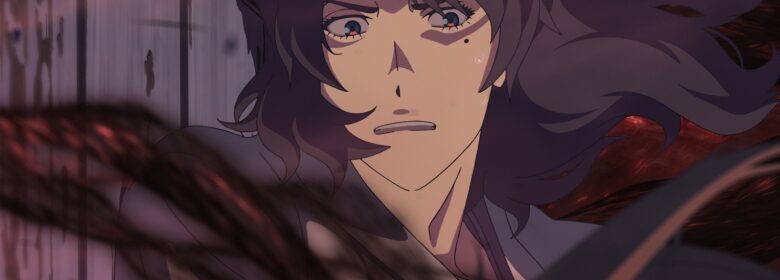Makoto Shinkai Gets Personal in Completing His Anime Disaster Trilogy with ‘Suzume’

Although anime master Makoto Shinkai has been consumed by cataclysmic disasters in his last three Japanese blockbusters — “Your Name,” “Weathering With You,” and “Suzume” (opening April 14 domestically through Crunchyroll) — the latest marks his most personal and ambitious film to date. That’s because “Suzume” was more directly inspired by the massive earthquake that hit the Tōhoku region of Japan in 2011, causing a nuclear meltdown. It’s about the titular teenager attempting to close supernatural doors throughout Japan to stop a chain of earthquakes from spreading.
“With that earthquake, that peaceful daily life ended suddenly, and it made me realize that we live side by side with something very phenomenal,” Shinkai told IndieWire through an interpreter. “Even in Tokyo, the ground shook quite a bit, so everyone was evacuated to a nearby gymnasium at an elementary school. I was fortunately close enough to be able to walk home. I remember just going home, holding my wife, my daughter, and just wondering: What’s gonna happen next that evening?
“And towards the end of March, when the cherry blossoms began to bloom, somewhat of a normal life returned to Tokyo residents. And the same, of course, can’t be said for everyone in the Tōhoku region. Even after 12 years, I think none of their lives have returned back to what they would consider normal. And that really got me thinking: Why did it not happen to me? What made us so different? [We were] filled with this sort of anxiety or helplessness. And, as an animator and director, I thought: ‘How do we put this and organize our thoughts in the context and backdrop of entertainment?’”
“Suzume”
Courtesy of Crunchyroll
Although Shinkai flirted with processing the disaster in the body-switching romance “Your Name” and the climate change romance “Weathering With You,” he wasn’t ready to tackle it head-on until “Suzume,” which is more concerned with traumatic coming-of-age than romance. The film explores Suzume struggling with her emotional demons after surviving an earthquake as a child that took the life of her mother. Since then, she’s been looked after by her aunt Tamaki. Yet they have a stormy relationship poignantly explored by the director, who had a lot to draw on as a father in his late 40s.
“I didn’t have many scenes featuring Tamaki in the beginning,” Shinkai said. “But gradually what made me realize her importance was Yojiro Noda of Radwimps [the rock group he’s worked with since ‘Your Name’]. When I gave him the screenplay, he read it and started composing some music. The first track he uploaded to me was titled ‘Tamaki,’ which never made it into the film, but it starts with the words, ‘I’ve always hated you.’ And that made me realize that her character and her perspective were essential to the narrative and the core of this film.”
The expansive adventure, which starts off in the quiet town of Kyushu in southwestern Japan, has Suzume and a mysterious traveler named Souta (magically trapped inside her three-legged chair) trying to contain a giant, ethereal-looking red worm from destroying the country. It allowed Shinkai to achieve a complex hybrid of 2D character animation and CG environments by CoMix Wave Films. In fact, the chair, of all things, proved the most daunting for the animation studio.
“Suzume”
Courtesy of Crunchyroll
“With regards to the chair, we began with 2D hand-drawn form of expressions,” he added. “But when I saw some of the first animations, I really didn’t like it because I felt I’ve seen that type of expression before in ‘Beauty and the Beast.’ It had this odd liveliness to it that I wasn’t looking for in Souta because he’s trapped in this very rigid and awkward object. I wanted it to feel stiff, and I wanted to animate something that was solid. So in that case, it helped doing it 3D/CG.”
Souta being trapped in the chair also introduced an absurd comic relief when he struggles to chase a possessed cat or assert control during action sequences. This was absent from Shinkai’s previous two films. But he thought humor was an important element in alleviating the constant tension in this disaster film.
“Humor was essential to this project from very early in its development, “said Shinkai, “and specifically because I’m making a movie about this earthquake at its core. I don’t think anyone would come, especially the younger audiences. They would think it’s doused in social commentary and exposition about the earthquake on society, which is why I had to pivot to entertainment.”
Source: Read Full Article



